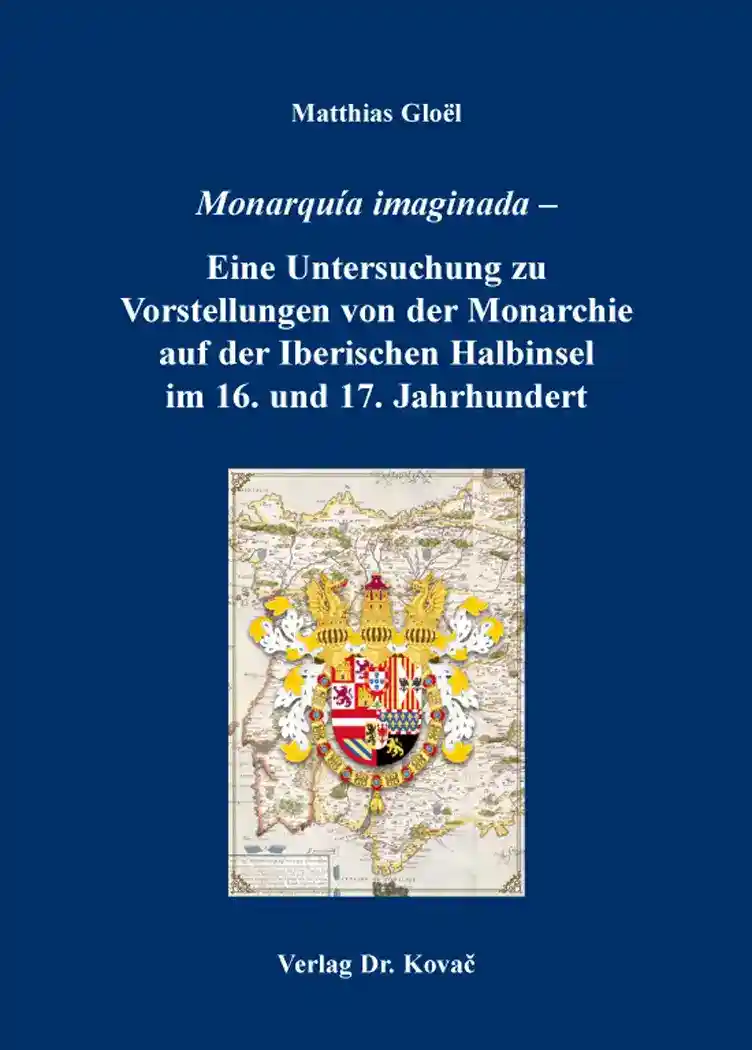Matthias GloëlMonarquía imaginada – Eine Untersuchung zu Vorstellungen von der Monarchie auf der Iberischen Halbinsel im 16. und 17. Jahrhundert
Studien zur Geschichtsforschung der Neuzeit, volume 82
Hamburg 2014, 426 pages
ISBN 978-3-8300-7972-9 (print) |ISBN 978-3-339-07972-5 (eBook)
About this book deutschenglishespañol
The book “Monarquía imaginada – Eine Untersuchung zu Vorstellungen von der Monarchie auf der Iberischen Halbinsel im 16. und 17. Jahrhundert” has to be located within the history of perceptions. It is about the varying perceptions of the Monarchy in the different Spanish kingdoms, Portugal included, in the 16th and 17th century. The seeked referendum in Catalonia for independence and recent proposals, for example by recent deceased Portuguese writer José Saramago, to unite the two states Spain and Portugal show how up to date the question of social and political unity or diversity in Spain is. The perceptions were measured by four different types of sources: Historiographical works, landscape descriptions, works about the question of language and about the seat of the court. There is a geographical dispartment in five technically independent kingdoms or principalities, which are Castile, Aragon, Catalonia, Valencia and Portugal. On the one hand the goal is to carve out similarities and differences between the center of power Castile and the peripheral (geographically and politically) kingdoms. On the other hand the goal is to answer the very same question between the peripheral kingdoms. The results shall show how far the juridical construction of the composite monarchy is reflected in the different kingdom's perceptions. Furthermore shall be shown if the role and importance of the own kingdom within the monarchy corresponds or differs from the reality of power. To reach this objective a multitude of sources from the different kingdoms, written in various languages, will be analyzed. The reader gains a deep insight into the Iberian Peninsula's reality in early modern times and he gets an understanding of the diversity problems Spain is facing until today. The great number of quotes, kept in their original languages, also give the reader an interesting perspective on the spelling of words and style of writing in the different Iberian languages in that time.
Keywords
16. Jahrhundert17. JahrhundertFrühe NeuzeitGeschichte der GeschichtsschreibungImagologieKatalonienKöniglicher AbsentismusMonarchiePortugalPortugiesische GeschichteQuestione della linguaSitz des HofesSpanienSpanische GeschichteVorstellungsgeschichteIhr Werk im Verlag Dr. Kovač

Möchten Sie Ihre wissenschaftliche Arbeit publizieren? Erfahren Sie mehr über unsere günstigen Konditionen und unseren Service für Autorinnen und Autoren.
